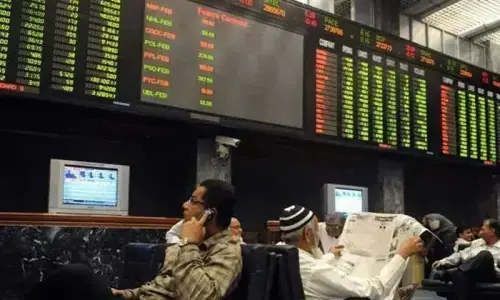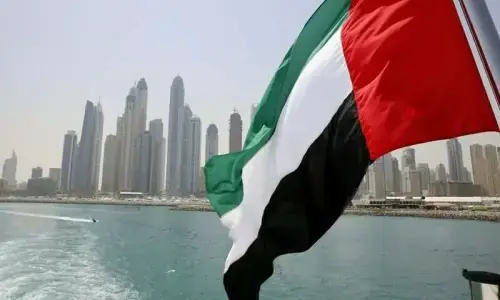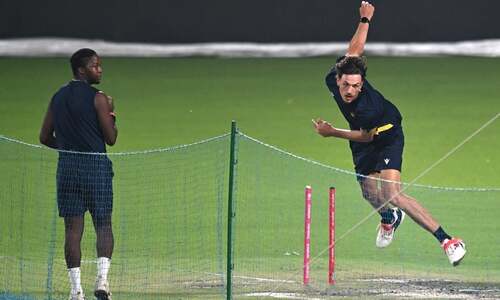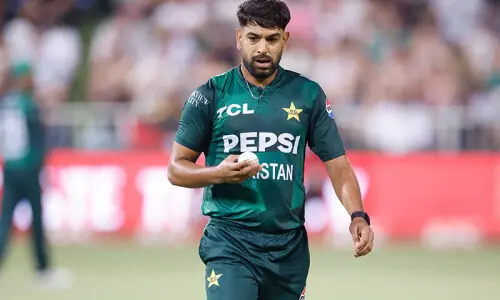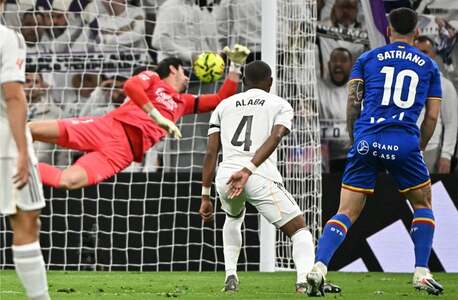Russian missiles have pounded more than 40 Ukrainian cities and towns over the past 24 hours, as Nato allies meeting in Brussels unveiled plans on Thursday to jointly beef up Europe’s air defences with Patriot and other missile systems.
“We are living in threatening, dangerous times,” said German Defence Minister Christine Lambrecht at a signing ceremony where Germany and more than a dozen of European Nato members committed to jointly procuring weapons for a “European Sky Shield” to better protect their territory.
Moscow renewed warnings that more military aid for Kyiv agreed earlier this week at the Nato meeting made members of the US-led military alliance “a direct party to the conflict” and said admitting Ukraine to the alliance would trigger a World War.
“Kyiv is well aware that such a step would mean a guaranteed escalation to a World War Three,” deputy secretary of Russia’s Security Council, Alexander Venediktov, told the state TASS news agency on Thursday.
Moscow has repeatedly justified the February 24 invasion that has killed tens of thousands of people, in what it calls a “special operation”, by saying Ukraine’s ambitions to join the alliance posed a threat to Russia’s security.
Nato is not likely to quickly allow Ukraine to join, not least because its membership during an ongoing war would put the United States and its allies into direct conflict with Russia under the alliance’s collective defence clause.
Washington and other Nato members have provided Ukraine with weapons to fight Russia and imposed sweeping economic sanctions but have tried to avoid more direct involvement in the war.
Ahead of the meeting of Nato’s defence ministers, including close-door talks by its nuclear planning group, US Defence Secretary Lloyd Austin vowed to defend “every inch” of members’ territory.
Even before the invasion, Nato had dragged its feet on Ukrainian membership. Shortly after Russia’s assault began, Ukrainian President Volodymyr Zelenskiy signalled he was willing to consider neutrality.
Zelenskiy has since asked for fast-track membership, hours after Russian President Vladimir Putin proclaimed partially occupied regions of Donetsk, Luhansk, Kherson and Zaporizhzhia as Russian land on September 30.
The annexation sparked international outrage. On Wednesday, the United Nations General Assembly overwhelmingly adopted a resolution condemning it as “illegal”.
In the past 24 hours, Russian missiles hit more than 40 settlements, while the Ukrainian air force carried out 32 strikes on 25 Russian targets, Ukraine’s Armed Forces General Staff said.
The southern port city of Mykolaiv came under massive bombardment, local officials said.
“It is known that a number of civilian objects were hit,” regional governor Vitaly Kim said in a social media post.
He said the top two floors of a five-storey residential building were completely destroyed and the rest were under the rubble. Video footage provided by state emergency services showed rescuers pulling from under the rubble an 11-year-old boy, who Kim said had spent six hours trapped under the debris.
Ukraine’s Prosecutor General’s Office three people were killed in the strike.
Kamikaze drones
Russia also targeted a settlement in the region of Ukraine’s capital Kyiv, where three drone strikes hit critical infrastructure early on Thursday, the region’s administration said on Telegram.
Governor of the Kyiv region, Oleksiy Kuleba, said that based on preliminary information the strikes were caused by Iranian-made loitering munitions, often known as “kamikaze drones”.
Ukraine has reported a spate of Russian attacks with the Shahed-136 drones in recent weeks. Iran denies supplying the drones to Russia, while the Kremlin has not commented.
Missiles struck about 30 multi-storey buildings and houses, gas pipelines and power lines in the city of Nikopol in the Dnipropetrovsk region, leaving more than 2,000 families without electricity, regional governor Valentyn Reznichenko wrote on Telegram.
Reuters was not able to immediately verify the reports.
As his forces suffered several setbacks since September, Putin has ordered the call-up of hundreds of thousands of reservists and repeatedly threatened to use nuclear weapons to protect Russia, including regions annexed last month.
‘Cold as weapon’
On Wednesday, more than 50 Western countries met to pledge more military aid to Ukraine, especially air defence weapons, after Putin ordered heavy retaliatory strikes in response to an explosion on a bridge in Crimea.
Germany has sent Ukraine the first of four IRIS-T SLM air defence systems, while Washington said it would speed up delivery of a promised NASAMS air defence system.
While Moscow denies targeting civilians, Kyiv says the strikes are aimed at the Ukrainian population and its power supply, with Russian forces trying to use “cold as their weapon”.
“In their sick imagination, Ukrainians sitting for several hours without electricity is a victory,” Prime Minister Denys Shmyhal said on Wednesday while calling on citizens to conserve energy and prepare for winter by stocking up on warm clothes, candles, torches and batteries.
At least 26 people have been killed since Monday in the Russian missile attacks. Ukrainian officials reported strikes at 28 energy installations.
Stressing the urgency of further assistance, Zelenskiy told the Parliamentary Assembly of the Council of Europe on Thursday that Ukraine still had about only 10 per cent of what it needed to protect itself against Russian air attacks.











